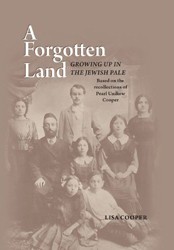Deborah Levy’s memoir, Things I Don’t Want to Know, is a carefully wrought work of art. It is also a clever take, from a woman’s point of view, on George Orwell’s essay “Why I Write.” She uses his chapter headings — Political Response, Historical Impulse, Sheer Egoism, and Aesthetic Enthusiasm — as her template, but populates them, in her swift prose, with her own biographical details and insights. Putting them in a different order, Political Response begins with her plight of depression (“That spring when life was very hard and I was at war with my lot and simply couldn’t see where there was to get to”) and examines the challenge of being a creative woman and, in particular, a creative mother.
Historical Impulse becomes Levy’s vessel for glimpses of her childhood in apartheid South Africa, following Orwell’s edict that one can’t “assess a writer’s motives without knowing something of his early development.” Interestingly, episodes when her Jewishness surfaces are opportunities for independence and revelation. When a teacher remarks on her Jewish name and scolds her for not beginning her notebook on the top line, she defies the teacher and writes on whatever line she pleases. She is sent to the headmaster, and while he hits her, she realizes that “if you do bad things to people, you do not feel safe.” When her godmother’s daughter informs her that she’ll be, “the only girl with a Jewish surname on the register” of the convent school, the reader fears for her. Instead, the nuns are loving teachers, and her favorite, Sister Joan, sets her on the path to becoming a writer, encouraging her to “say my thoughts out loud.” Rather than speaking loudly, she writes down what she doesn’t want to know: “Dad disappeared. Thandiwe cried in the bath. Piet’s got a hole in his head…” Here Levy mirrors Orwell’s motive for writing: “My starting point is always a feeling of partisanship, a sense of injustice.”
Sheer Egoism finds Levy’s teenage self stumbling about on lime green platform shoes, writing on napkins in the greasy spoon of a dreary London suburb: “It was as if someone pulled the plug out of England at 4pm.”
That plug reappears when the final chapter, Aesthetic Enthusiasm, picks up where the beginning left off: the narrator is connecting with a Chinese shopkeeper over a bottle of wine on the island of Majorca, where she has fled to sort herself out, and where she finally realizes that “where I had to get to was that socket,” namely the hole in the wall, where she can plug in her laptop to write. Thus, this talented writer found her spark again, and readers are richer for it, especially those who appreciate the symbolism of well placed details — the oranges, for instance, softened under the sole of the foot and sucked dry through a hole in the peel, first by the child in Johannesburg, and then by the adult in Majorca.
Related content:
- Swimming Home by Deborah Levy
- A Lonely Golem by Matthue Roth
- The Lion Seeker by Kenneth Bonert
- Plumes: Ostrich Feathers, Jews, and a Lost World of Global Commerce by Sarah Abrevaya Stein





